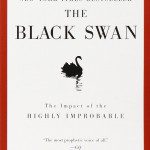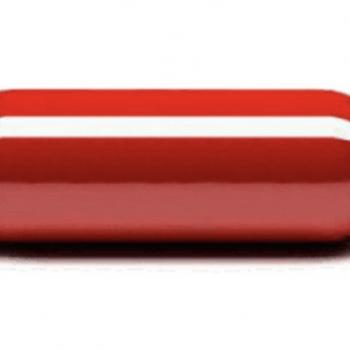
I recall reading somewhere that oriental potentates grew their fingernails long in order to show that they didn’t have to work with their hands. I did a cursory search on the internet to see if that is so and I didn’t come up with anything. Maybe I got the idea from watching Flash Gordon. Ming the Merciless looks like he had a first-rate manicurist.
Most people agree, manual labor necessarily includes some measure of drudgery. We can even see the linkage made in the curse that sends Adam and Eve east of Eden:
“…cursed is the ground because of you; in pain pain you shall eat of it all the days of your life;…. By the sweat of your face you shall eat bread,….” Gen. 3:17 & 19
Whether or not you believe we’re under a curse, it is hard to deny that most people have to work hard for a living. For most people in the past that meant working with their hands.
If you’re going to have a lot of people working together, you’ll need some people to direct them. Since civilization really got underway we have needed planners and managers to boss the rest of us around, but until recently this class has been a small minority. And just as a practical matter, doers really do need to defer to thinkers. So higher status necessarily goes along with telling other people what to do. And furthermore, because you need to divide the labor to get more done. That means you’ll have skilled craftspeople for the more intrinsically satisfying tasks, and the drudgery of digging ditches and that sort of thing will be left to the people at the very bottom of the status ladder.
Leisure Class Gnosticism?
It’s all very understandable, but it has had some unintended consequences. Historically, one of those consequences has been the rise of a leisure class.
It is too easy to disparage the leisure class. Yes, many of them lived ridiculous and wasteful lives. But they have also been patrons of the arts, and their pastimes have seasoned whole societies for the better. We wouldn’t have the great cathedrals or many of the arts we enjoy today without them.
Still, we also owe a contempt for manual labor to them. And their cosseted children have a reputation for being squeamish and effete. And while we’re at it, let’s throw in perverse. It wasn’t all Aristotle and Homer in the parlor, you know. Wastrels spent plenty of time pursuing dainties, one suspects more time, far more.
The spiritual cast of all this is gnostic, it seems to me, both the disparagement and the indulgence. (Some of the ancient Gnostics were libertines.) Good things are rarefied, but made by others. Bad things, things to avoid, have to do with their making. That’s where the drudgery lies, in the frustrations that come with producing things. The good life is one of ease, not only that, that’s where status is found. Making things, working with your hands, that’s for hoi polloi.
It turns out that this isn’t healthy. There are the physical consequences of a sedentary life. The body needs stressors to be well. And since most of us sit around these days, even at work, a whole new industry has sprung up. Now people ride bikes to nowhere, or run in big circles, or lift heavy objects repeatedly for no other reason besides physical well-being. To anyone living before the twentieth century, with the exception of the place that made the best apology for the leisure class, classical Greece, this would be evidence of insanity. You want to do something physical? Go to the back 40 and dig post holes. At least that serves a useful purpose.
And stressors are needed to be healthy in other ways too. With all of our technology we’ve managed to democratize the vices of the leisure class. Now it’s not the just the wealthy man’s child who has nothing better to do than be entertained, it’s your kid.
The Yeomanry
There is another way to divide the work you know. You can divide your time.
In spite of the curse, it is the Judeo-Christian tradition that recognizes the dignity of physical labor. Israel is to work six days and rest on the seventh. (And that rest is not simply a cessation from physical labor, it is for enjoyment, and a sign of God’s rule that his people have the privilege of sharing in.) Then there were the monasteries of Christianity, with their patterns of work and prayer. Work for Christians and Jews has value because God works. He set the pattern for us in Genesis one.
I don’t suppose I am the likeliest candidate for preaching the virtues of manual labor. My father was an academic and my mother was something of an artist. I’m not terribly strong naturally. (Today I’m fairly strong for my size because I’ve worked for it.) I came to see things the way I do by accident, I suppose. In seminary I took up framing as a trade.
I got my start by working for a commercial contractor and later threw in my lot with a bunch of seminary buddies who built decks on high-end homes around Kansas City. We’d spend the mornings in class, studying Greek and arguing about Luther and Wesley, then we’d jump into our trucks and head out to the work site.
I remember many a hot Kansas afternoon, sweating shirtless in the sun, tool belt on, worm drive saw in hand, surrounded by my friends, laughing, still arguing theology, the sweet aroma of western cedar rising all around us. It was a good time.
And this gave us preacher boys more than callouses. We spent time with other men, usually hard-living men, men we would later understand and enjoying being around as pastors.
The skills I picked up in those days made a man of me. They also helped me as a minister for the reason stated above. And last of all, they’ve helped me acquire a measure of financial independence. They’ve made me something of a yeoman, a man who uses both his head and his hands.
The Rise of the Robots
But the relentless logic of gnosticism is still with us and it is threatening to put a lot of people out of work. Robot factories are opening in Germany and China. (Read about it here.) And because physical labor is not given its due, this is justified by appeals to efficiency alone. People don’t seem to believe that physical work makes us virtuous and human. To the folk who want to replace us all with robots it’s just drudgery.
Maybe it was once true for the hard and thankless work of digging ditches or harvesting tobacco. (I have my doubts about that.) But the machinery that replaced John Henry is working its way up the corporate ladder. Even those white collar jobs people once thought could never be performed by machines are under threat.
“…no one foresees any new employment sectors opening up that are sufficient to swallow the displaced workers or the hundreds of millions of people entering the workforce across the planet. Not even close.” Robert McChesney
As you can see from the quotation above, the biggest concern has to do with keeping people gainfully employed. And sure, that’s something worth thinking about. But let’s just say we were able to work this whole thing out and put every single person on the planet on the dole. Let’s just say that in the world of tomorrow we’ve democratized the leisure class. What then? Would we be better people for it?
If you think reality television, drug use, and profligate sex is bad now, just wait. We may be on the verge of consumer hell. I suppose we can look forward to a future filled with little emperors made in the image of Ming the Merciless.
What to do?
I’m not sure. But I do know that our view of work has got to change or we will turn humanity into a race of self-indulgent slugs. Culture should cultivate human beings first of all. And if what is best in us can only come forth with the help of productive physical labor, then we can’t give it all over to the machines without harming ourselves.
God formed man from the soil and breathed into him the breath of life. That means man is a composite being–partly soil (Adam means soil, you know) and partly spirit. To choose the spirit and reject the soil divides what God has joined together.
To be whole again we must see the physical world as God’s creation, not merely as raw material to impose our wills upon. And if we can manage to do that, we will see our bodies as gifts, things to enjoy and use as we work with the world God has made. Our bodies don’t confine our true selves, like some decaying prison. They constitute something essential to ourselves. We emerge from them. But we don’t discard them at death. At least in the Christian faith, they have a future. They will clothe us eternally. And I suppose we will use them in the new creation in all sorts of productive ways we can’t imagine now.
I think this is where the discussion should begin.












